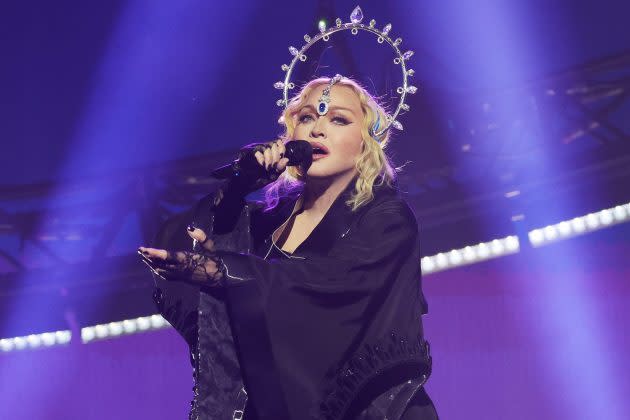Madonna, the iconic pop superstar, is facing legal action over the delayed start time of one of her concerts. Plaintiffs allege that they were misled by the advertised start time and suffered inconvenience as a result. Madonna’s legal team has filed a motion to dismiss the lawsuit, arguing that the plaintiffs failed to demonstrate clear injuries. This article delves into the legal and ethical dimensions of Madonna’s late concert start, exploring the implications for both artists and concertgoers.
The Lawsuit: The lawsuit against Madonna, Barclays Center, and Live Nation revolves around the discrepancy between the advertised start time of the concert and the actual start time. Plaintiffs contend that they were misled and would not have purchased tickets if they had known about the late start. They also argue that the delayed end time inconvenienced and possibly endangered concert attendees due to limited transportation options and disrupted schedules.
Legal Arguments: Madonna’s legal team asserts that late starts are common in the concert industry and that her concerts are known for their tardiness. They argue that the plaintiffs’ claims lack merit because concert start times are inherently unpredictable. Additionally, they highlight the plaintiffs’ prior attendance at Madonna concerts, suggesting that they were aware of her tendency for late starts.
Ethical Considerations: Beyond the legal arguments, Madonna’s late concert start raises ethical questions about transparency, consumer rights, and the responsibilities of performers. Artists have a duty to respect their audience’s time and expectations, and misleading advertising can undermine trust and loyalty. Concertgoers rely on accurate information to make informed decisions about attendance, transportation, and scheduling.
Consumer Protection: The lawsuit underscores the importance of consumer protection in the entertainment industry. Advertisements must provide accurate and truthful information to avoid misleading consumers. Concert organizers and performers have a responsibility to communicate any changes or delays promptly and transparently. Failure to do so may result in legal repercussions and damage to the artist’s reputation.
Impact on the Industry: Madonna’s legal battle over the late concert start may have broader implications for the entertainment industry. It could prompt venues and promoters to review their advertising practices and communication protocols to ensure compliance with consumer protection laws. Artists may also reconsider their approach to punctuality and the expectations of their audience.
Madonna’s late concert start has sparked a legal dispute that raises important questions about transparency, consumer rights, and ethical responsibilities in the entertainment industry. While the outcome of the lawsuit remains uncertain, it underscores the need for clear communication, honesty in advertising, and respect for audience expectations. As artists continue to navigate the complexities of live performances, they must prioritize transparency and accountability to maintain trust and integrity within their fan base.
